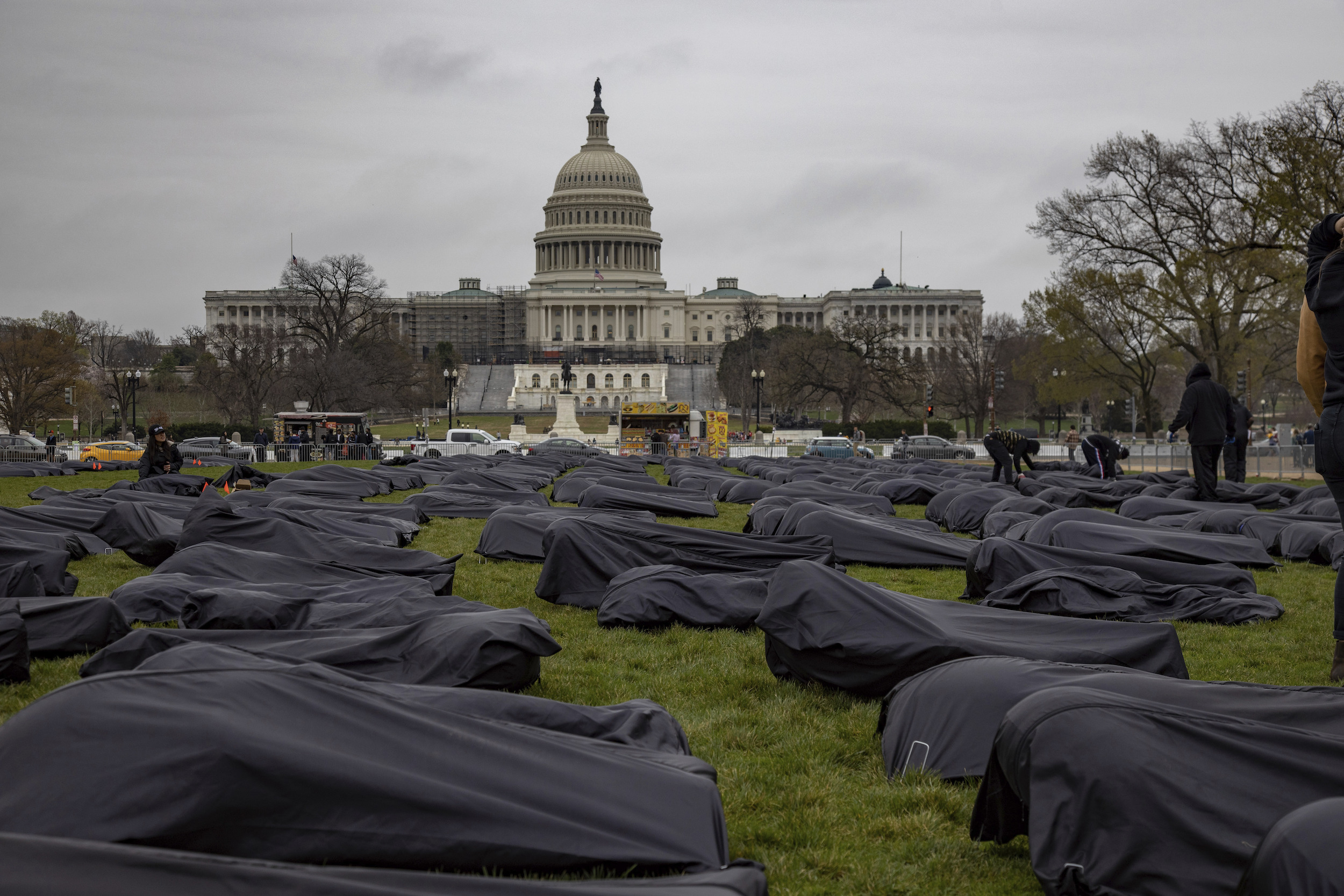For the first time since President Joe Biden took office, and in response to mounting criticism that he has abandoned the cause of reducing gun violence, the White House is providing details about the team responsible for that policy. The administration is expected to address those concerns publicly on Monday in the form of a three-page fact sheet, an effort to reassure allies that violence prevention is still a priority.
The document, provided exclusively to The Trace, doubles down on what the administration calls Biden’s “comprehensive gun crime reduction strategy.” But the statement does not include new policy proposals or executive actions, nor an announcement of a new nominee to lead the Bureau of Alcohol, Tobacco, Firearms and Explosives, which remains without a permanent leader.
“The solutions to gun violence are interdisciplinary,” wrote Stefanie Feldman, a deputy assistant to the president and senior adviser to the Domestic Policy Council. She noted that the Domestic Policy Council has organized a 12-person team to drive a gun violence reduction agenda that includes Chiraag Bains, a deputy assistant to the president for racial justice and equity; Vanessa Chen, a special assistant for criminal justice and guns; and Erin Murphy, a senior policy adviser for criminal justice. The team has existed since the early days of the administration, though it has grown in recent months. It operates under Susan Rice, the head of the Domestic Policy Council. None of the people on the team is focused on gun violence exclusively, though Chen focuses largely on the intersections of guns and criminal justice.
Some groups focused on gun reform, like March for Our Lives and Guns Down America, have long expressed their disappointment in Biden’s lack of action on the issue. They have criticized him for not using his executive authority to its fullest extent and for failing to make legislative progress, despite his campaign promises. But recently, other larger, more mainstream groups that typically praise the Biden administration in public have begun to raise concerns that its staffing has been insufficient. Some reached out to the White House privately, asking the administration to address their concerns, advocates aware of the conversations told The Trace.
White House staff members have been meeting with representatives from gun reform groups in recent weeks. One of those meetings was with advocates from March for Our Lives, following what was perhaps the most visible manifestation of activists’ critiques: On March 24, activists with the group — led largely by the survivors of the 2018 Stoneman Douglas High School shooting in Parkland, Florida — placed 1,100 body bags on the National Mall, each representing roughly 154 gun deaths. Together, they add up to the 170,000 lives lost to gun violence since 2018. The body bags spelled out “thoughts and prayers.” Earlier in March, Democratic Senators Richard Blumenthal and Chris Murphy of Connecticut, and separately Representative Jamaal Bowman of New York, expressed frustration, saying it’s time to “see more urgency” from the president, including creating an office of violence prevention.
White House officials have repeatedly defended the way the president has handled the sequencing of legislative efforts, while blaming the inaction on Congress. They’ve argued that staffing is not the barrier to getting things done, noting that he began his term amid an economic crisis and a raging pandemic. Despite those pressing issues, they’ve said, the administration secured at least $400 million in funding that cities and states could use for community-based violence intervention and police, and also advanced several pending regulations including on difficult-to-trace ghost guns.
“That progress is made possible by the dedicated gun violence prevention team we have at the White House, working to combat gun violence — every day, from every angle,” Feldman wrote in the document.
In the fact sheet, the administration again pointed to its previous actions. With the midterm congressional elections approaching, and advocates fearing that the window for significant reform is closing, the White House aims to show that it has a plan to take advantage of the assured time it has left with Democratic control of both chambers. Biden, in his recent State of the Union address, called on Congress to pass universal background checks and repeal a liability shield law that protects the gun industry from most lawsuits.
Meanwhile, Feldman, a longtime aide to Biden with a broad policy portfolio, identified herself as responsible for coordinating the White House’s gun violence work and legislative efforts. In response to requests from outside groups to create an office solely focused on gun violence, she wrote that the White House’s approach — and the way its team is organized — is best able to deliver results: “This is what a whole-of-government effort truly looks like in practice.”
Some advocates dispute that claim. “What they’re actually describing here is an approach that is centered around the Domestic Policy Council, not the whole of government,” said Igor Volsky, the executive director of Guns Down America.
Feldman argued that the diverse portfolios and responsibilities of the experts on the gun violence team are assets, not potential distractions. The approach enables them to address gun violence in addition to its root causes, including mental health issues, racial inequity, poor support for veterans, and a lack of employment and health care. “Our team,” wrote Feldman, “is able to combine a deep focus on this issue with the ability to deliver on it across the White House and the Administration as a whole.”

